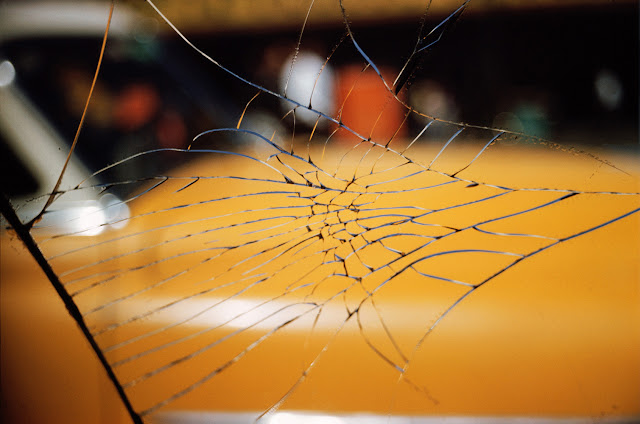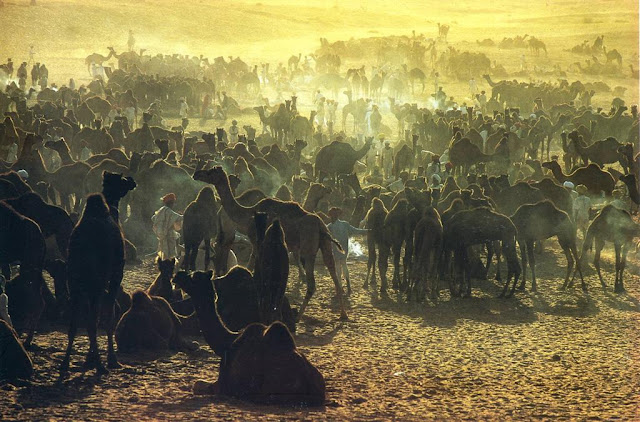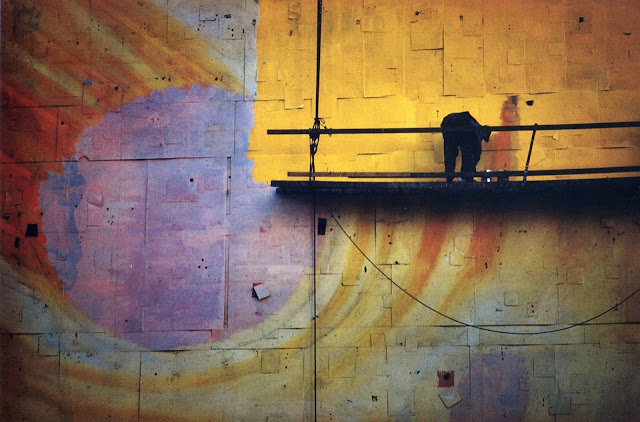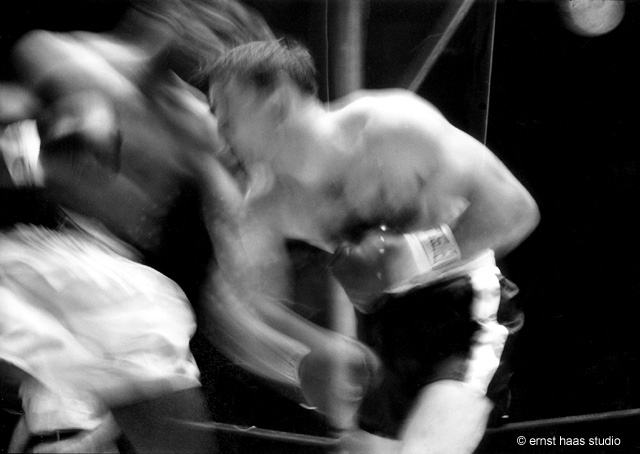Ernst Haas ~ Self Portrait
Ernst Haas (March 2, 1921, Vienna – September 12, 1986, New York) was an Austrian artist and influential photographer noted for his innovations in colour photography, experiments in abstract light and form, and as a member of the Magnum Photos agency.
Haas attended medical school in Austria, but, in 1947, left to become a staff photographer for the magazine Heute. His photo essay for the magazine on prisoners of war coming home to Vienna won him acclaim and an offer to join Magnum Photos from Robert Capa. Haas and Werner Bischof were the first photographers invited to join Magnum by the founders Capa, David "Chim" Seymour, Henri Cartier-Bresson, George Rodger and Bill Vandivert.
Haas moved to New York City and in 1953 produced a 24-page, colour photo essay on the city for Life, which then commissioned similar photo spreads on Paris and Venice. In 1962, the Museum of Modern Art mounted a one-man show of Haas' colour photos. His was the first color show ever held at the Museum. Haas' first photo book, Elements, was published the next year.
Focus was not always a necessary element in the work of Haas. Some of his most famous photographs were deliberately out of focus and blurred. Haas believed that this technique helped to create even stronger visual effects. Haas utilized elements of selective depth of field, overexposure and softness of focus to enhance his subjects. And these became hallmarks of his work. His work was so unique and vibrant due to his use of the dye transfer process which made his photos full of richly saturated colors.
Haas, like many other photographers of his day learned his trade on a twin-lens Rolleiflex and then moved on to a smaller Leica which he used for the rest of his career.
In 1964, film director John Huston hired Haas to direct the creation sequence for Huston's 1964 film, The Bible. Haas continued working on the theme, producing the photo book, The Creation in 1971. Other photography books by Haas included In America in 1975, a tribute to his adopted country for its bicentennial year; Deutschland in 1977; and Himalayan Pilgrimage in 1978. Other films that Haas worked on included The Misfits in 1961, Hello, Dolly! in 1969, Little Big Man in 1970, and Heaven's Gate in 1980. Haas also photographed a number of advertising campaigns for Marlboro cigarettes.
In 1986, Haas received the Hasselblad Award for his photography. Haas died in New York City.
[via wiki]
Marlboro Ad shot by Haas
Ernst Haas photographer by Elliot Erwitt
Ernst Haas (March 2, 1921, Vienna – September 12, 1986, New York) was an Austrian artist and influential photographer noted for his innovations in colour photography, experiments in abstract light and form, and as a member of the Magnum Photos agency.
Haas attended medical school in Austria, but, in 1947, left to become a staff photographer for the magazine Heute. His photo essay for the magazine on prisoners of war coming home to Vienna won him acclaim and an offer to join Magnum Photos from Robert Capa. Haas and Werner Bischof were the first photographers invited to join Magnum by the founders Capa, David "Chim" Seymour, Henri Cartier-Bresson, George Rodger and Bill Vandivert.
Haas moved to New York City and in 1953 produced a 24-page, colour photo essay on the city for Life, which then commissioned similar photo spreads on Paris and Venice. In 1962, the Museum of Modern Art mounted a one-man show of Haas' colour photos. His was the first color show ever held at the Museum. Haas' first photo book, Elements, was published the next year.
Focus was not always a necessary element in the work of Haas. Some of his most famous photographs were deliberately out of focus and blurred. Haas believed that this technique helped to create even stronger visual effects. Haas utilized elements of selective depth of field, overexposure and softness of focus to enhance his subjects. And these became hallmarks of his work. His work was so unique and vibrant due to his use of the dye transfer process which made his photos full of richly saturated colors.
Haas, like many other photographers of his day learned his trade on a twin-lens Rolleiflex and then moved on to a smaller Leica which he used for the rest of his career.
In 1964, film director John Huston hired Haas to direct the creation sequence for Huston's 1964 film, The Bible. Haas continued working on the theme, producing the photo book, The Creation in 1971. Other photography books by Haas included In America in 1975, a tribute to his adopted country for its bicentennial year; Deutschland in 1977; and Himalayan Pilgrimage in 1978. Other films that Haas worked on included The Misfits in 1961, Hello, Dolly! in 1969, Little Big Man in 1970, and Heaven's Gate in 1980. Haas also photographed a number of advertising campaigns for Marlboro cigarettes.
In 1986, Haas received the Hasselblad Award for his photography. Haas died in New York City.
[via wiki]
“A picture is the expression of an impression. If the beautiful were not in us, how would we ever recognize it?” ~ Haas
Marlboro Ad shot by Haas
“There is only you and your camera. The limitations in your photography are in yourself, for what we see is what we are.” ~ Haas
"There is no formula -- only man with his conscience speaking, writing and singing in the new hieroglyphic language of light and time." ~ Ernst Haas
“I never really wanted to be a photographer. It slowly grew out of the compromise of a boy who desired to combine two goals—explorer or painter. I wanted to travel, see and experience. What better profession could there be than the one of a photographer, almost a painter in a hurry, overwhelmed by too many constantly changing impressions? But all my inspirational influences came much more from all the arts than from photo magazines.”~ Haas
“With photography a new language has been created. Now for the first time it is possible to express reality by reality. We can look at an impression as long as we wish, we can delve into it and, so to speak, renew past experiences at will.”
~ Haas
Ernst Haas photographer by Elliot Erwitt



















































































No comments:
Post a Comment